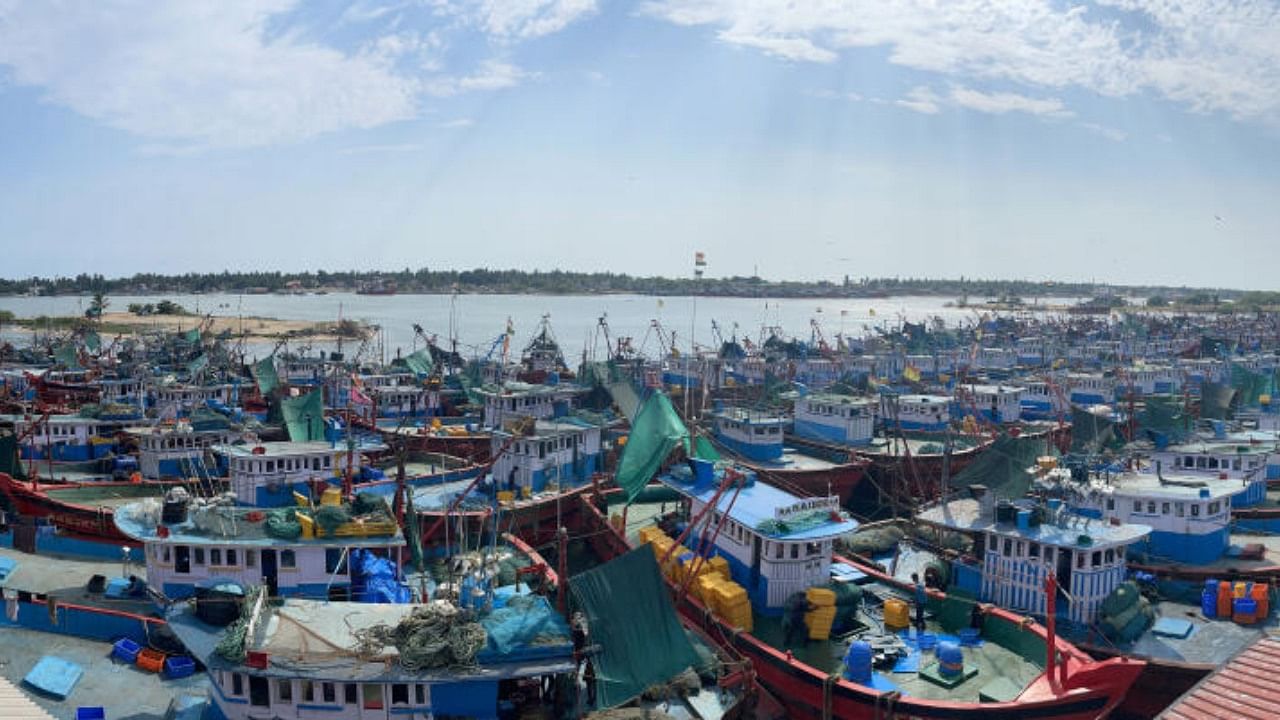
There has been a rise in fish catch in 2022-23 compared to previous years in Dakshina Kannada (DK) and Udupi districts.
According to officials of the Fisheries Department, the fish catch in Dakshina Kannada during 2022-23 was 3,33,537.05 tonnes, worth Rs 4,154 crore. In the Udupi district, the fish catch in the same period was 2,12,081 tonnes, worth Rs 2,655.28 crore.
In 2021-22, these figures were 2,91,812 tonnes worth Rs 3,801.60 crore in DK and the fish catch was 1,80,035 tonnes, worth Rs 1,850.18 crore, in the Udupi district.
In 2020-21, 1,39,714 tonnes of fish, worth Rs Rs 1,924 crore, were caught in DK and in the Udupi district, 1,04,453 tonnes of fish, worth Rs 1,109 crore, had been caught.
Bumper fish catch
Fisheries Department deputy director Sushmitha Rao said the fishermen received bumper fish catch during 2022-23.
Udupi MLA Yashpal Suvarna said the fish catch during the season is good. "Traditional boats have faced many hardships due to delays in the supply of kerosene," he said.
Nadadoni Mathu Yantrikadoni Meenugarara Prathamika Vividdhodesha Sahakari Sangha, Malpe, secretary Gopal K said, "Though fish catch was good, the fishermen did not benefit due to poor prices. The cost of fishing boat spare parts has increased."
He said they face many challenges due to the scarcity of water. "To clean and process fish, water is needed," Panduranga Mogaveera, a fisherman said.
"Whenever the weather turns stormy, we cannot venture into the sea for fishing," he added.
Deep-sea fishing ban
A 61-day annual deep-sea fishing ban is in effect in the coastal belt from June 1 to July 31.
With the ban, mechanised boats and traditional boats fitted with inboard or outboard engines of 10 hp and above are banned from carrying out fishing activities.
The government has banned fishing between June 1 and July 31 under the Karnataka Coastal Fishing (Regulation) Act, 1986 to facilitate the breeding of fishes and prevent juveniles from being caught with other fishes.
The fishing boats, fitted with engines of up to 10 hp, are allowed to carry out fishing during the period. Those fishermen, who flout government orders, will not get diesel subsidies for a year, Joint Director of Fisheries Department Harish Kumar told DH.
What do fishermen do during the ban?
The ban on fishing also helps fishermen to prepare for the next fishing season by repairing their boats and fishing nets.
Fisherman Nagaraj Kharvi, also a member of the Malpe Fisheries Association, said, "The ban on deep-sea fishing is like a holiday for fishermen."
Some fishermen go fishing in a country craft. During this period, women support their families by selling dry fish and fish caught by men with the help of crafts. "A few even look for short-term work at hotels," he added.
Migrant labourers from Tamil Nadu, Odisha, Jharkhand, West Bengal and other states return to their native villages during the ban period.